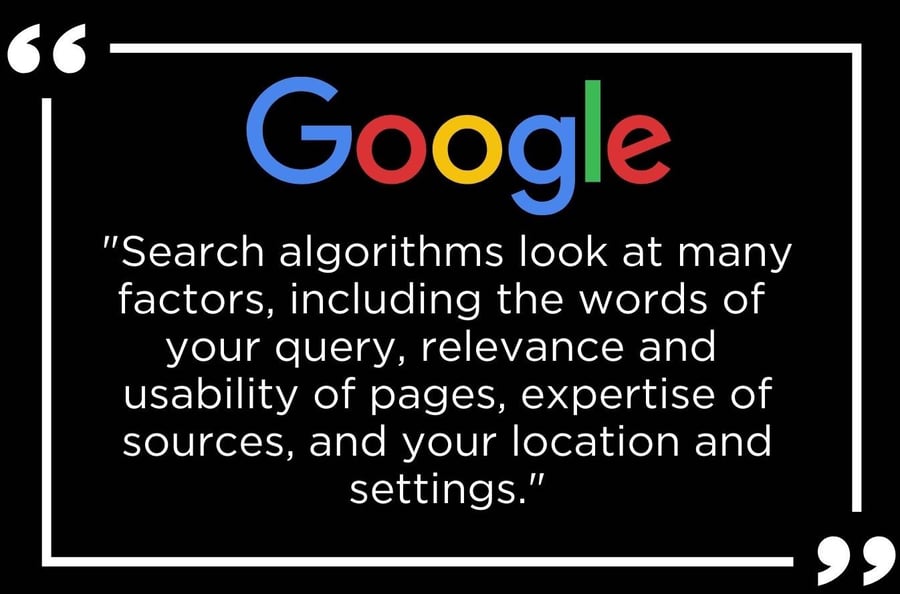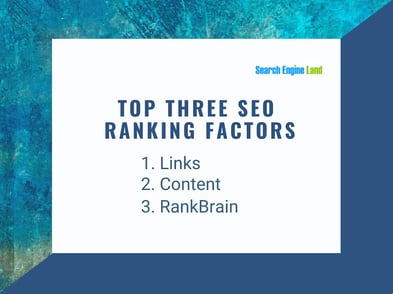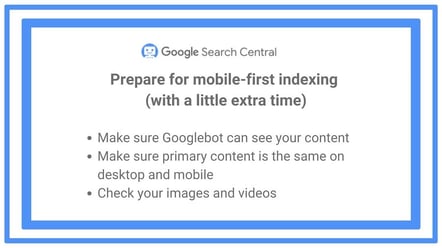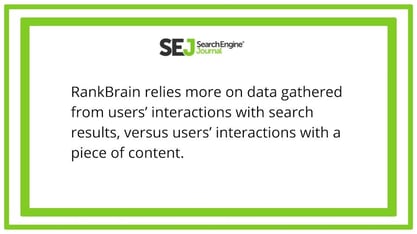Google and Bing SEO ranking systems run on a combination of algorithms that bring many factors into play. But which factors matter the most for SEO ranking in 2021?
If you search for the phrase “SEO Ranking Factors,” you’ll find short lists of three ranking factors, all the way to lists of 200 important ranking factors! That can be overwhelming, so before we dive in too deep, let’s look at what Google & Bing actually tell us.
What are SEO ranking factors?
In Google’s How Search Works guide, Google describes “ranking systems” as a series of algorithms. Ranking factors are described in the quote below:
Bing Webmaster Tools offers a more technical description of ranking factors:
- Sitemap with consistent URLs,
- Backlinks
- Avoid duplicate content
- Use robots.txt in the root directory
- Optimize page speed
What About Other Search Engines?
ALL search engines use algorithms to deliver the most reliable and relevant information available. Google is clearly the market leader and most popular search engine, followed by Youtube. This is unlikely to change in 2021.
Voice search tools also run on search engines; Alexa & Microsoft Cortana use Bing. Google Home & Siri use Google. What about DuckDuckGo, Facebook, and Yahoo? Alexa ranks all of them in the top 500 sites on the web.
3 Types of SEO
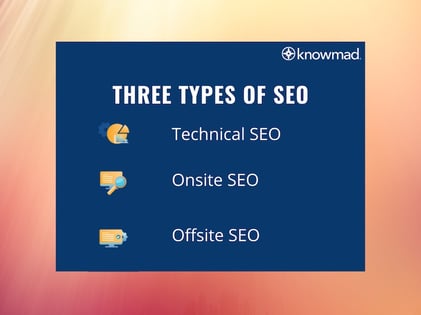
Before we jump into ranking factors, let’s make a distinction between the types of SEO. There are three main types of SEO that will enable search engines to find keywords on your website and prompt them to serve up your URL above competitors.
Technical SEO
Technical SEO is a “backend” implementation that sets up your website architecture and web pages for optimum crawling and indexing.
Onsite SEO
Onsite SEO, sometimes referred to as on-page SEO, focuses on the placement of keywords in the right places on the website and implementing a keyword hierarchy that cross-links related topics. Content, images, anchor text with internal linking, title tags, meta-description tags, and H1 tags all fall under the onsite SEO category.
Offsite SEO
Offsite SEO builds the authority of your website through backlinks. The type and quality of backlinks has been an important part of algorithm changes over the years, but in 2021, backlinks will still matter.
Which Type of SEO is Most Important in 2021?
Think of these three types of SEO as complimentary; they all play an equal part in the SEO marketing flywheel. But in 2020, Technical SEO has been the main focus of Google’s algorithm changes. Remember that Google shared the top three ranking factors with us back in 2016, and they’re still relevant today:
Let’s look at the most recent Google announcements and updates they relate to technical SEO and RankBrain.
Ranking Factors for Mobile First Index
Mobile algorithms started back in 2016, and they’re much more sophisticated than the original “responsive design” recommendations. In March 2020, Google announced that mobile-first indexing would apply to all websites starting in September. In July, they extended the time frame for mobile-first indexing for all websites to March 2021.
Making sure Googlebot can see your content isn't a new concept, but if Googlebot can't crawl your content properly for a mobile index, you're wasting time (and money) on SEO.
Robots Meta TagsEnsure your page-level settings are the same for both desktop and mobile. Learn more about robots meta tags and page/text-level settings via Google Search Central.
ImagesImage optimization is critical for mobile indexing. Use the following checklist:
- If you’re implementing lazy-loading, be sure that Google can crawl and index lazy-loaded content. Use the Lazy Load Images and Video Guide from Google.
- Speed. When a page doesn’t meet Google’s speed standards, it’s usually an image loading issue. If you suspect your images are the cause of poor page speed, you can use Google’s URL mobile friendly test. If speed is a site-wide issue, use GTMetrix for an in-depth speed analysis. Don’t assume your CMS or a plug-in is optimizing your images for speed! Check Google’s Search Console’s Mobile Usability report on a regular basis to ensure that your images aren’t causing any crawl or index issues.
- Quality. Don’t publish images with small text or poor resolution. If your page has 10 or more images, consider using thumbnails on the mobile version.
-
- Alt attributes. Use alt attributes on all of your images, and make sure it matches the keyword target or related phrases.
- On mobile, make sure your video isn’t bumped off the page by an ad or poor placement. Search engines may penalize the page if the video isn’t accessible on mobile.
RankBrain Signals
RankBrain dates back to 2015. Google’s senior research scientist, Greg Corrado, identified RankBrain as the “third-most important signal contributing to the result of a search query,” in a Bloomberg article.
Originally, it only applied to 15% of all searches. Today, it impacts ALL search results. Unlike other ranking factors, you can’t optimize your website specifically for RankBrain. But you can use onsite SEO to maximize your website’s appearance in the search results for specific keyword targets AND semantically related keywords and phrases.
Search Engine Journal explains RankBrain best:
If you would like to use an SEO tool to help your website send the right “signals” for RankBrain, I recommend the On-Page SEO Checker from SEMrush. It provides insight on “readability, backlinks, and more,” giving you suggestions to help improve the usability and therefore, your website’s experience signals.
A Word of Caution
Before you dive into best practices for 2021, make sure you’re using an SEO strategy that aligns with Google Search Central’s quality guidelines. Remember, Google turned 22 in 2020, and the first algorithm update goes back to 2011.
Ready to check the quality of SEO factors on your website? Get started right away with our free 21 Point SEO Assessment. Skip the software automated reports and get a review from an SEO expert who works in SEO services on a daily basis.
As the SEO landscape continues to evolve, we’re here to help you keep up with changes and keep growing your traffic!

Matt Edens
A former marketing executive (and a data nerd at heart), Matt is a search engine optimization (SEO) and search engine marketing (SEM) expert energized by the competitive and ever-evolving landscape of digital marketing.



